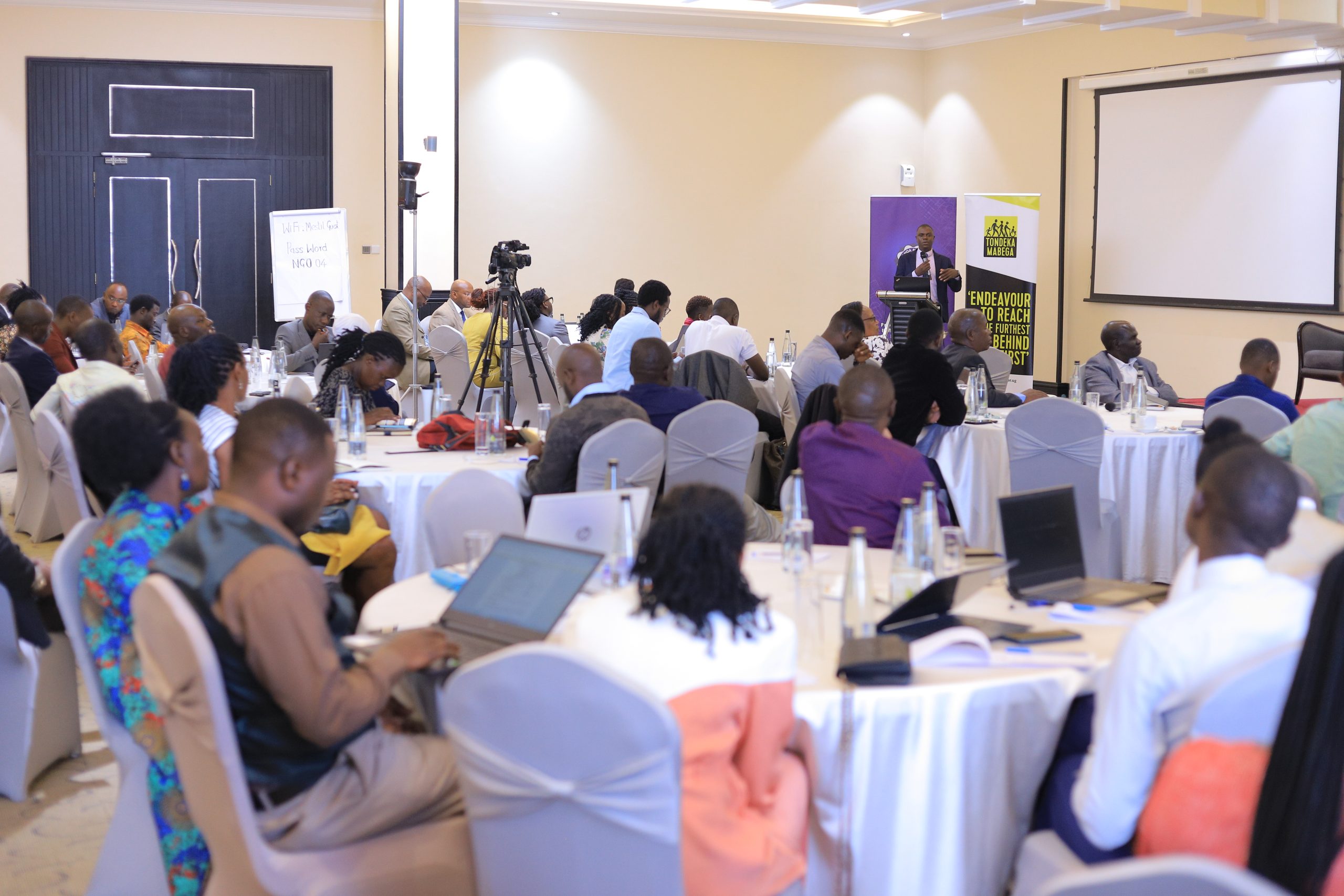
UNNGOF Convenes a Pre-HLPF CSO Dialogue on Uganda’s 2024 VNR Report
Ahead of the High-Level Political Forum, Uganda National NGO Forum, under the auspices of the CSO Reference Group convened Pre-HLPF CSO Dialogue on Uganda’s 2024 VNR Report. The meeting brought together over 50 participants from Civil Society Organizations at both subnational and national levels and the SDG Secretariat.
During the dialogue, Civil Society actors had an opportunity to discuss Uganda’s third VNR report and build consensus on the key Civil Society messages for the High-Level Political Forum and discuss the key messages emerging from different thematic reports produced by various CSOs.
Pascal Byaruhanga from the SDG Secretariat shared findings on the progress of the SDGs in the Third Uganda VNR report, appreciating CSOs and other stakeholders for their consultations during its formulation process. Annually, as part of its follow-up and review mechanisms, the 2030 Agenda for Sustainable Development encourages member states to conduct regular and inclusive reviews of progress at the national and sub-national levels, which are country-led and country-driven. These national reviews serve as the basis for regular reviews by the High-Level Political Forum (HLPF), meeting under the auspices of ECOSOC. The regular reviews by the HLPF are voluntary, state-led, and involve multiple stakeholders. The voluntary national reviews (VNRs) aim to facilitate the sharing of experiences, including successes, challenges, and lessons learned, to accelerate the implementation of the 2030 Agenda. The VNRs also seek to strengthen government policies and institutions and to mobilize multi-stakeholder support and partnerships for the implementation of the SDGs.
A number of key messages were raised during the dialogue: The need to meaningfully engage the youth in SDG discussions and decision-making processes; Inclusion of women and young girls in decision-making processes; Deepened localization of SDGs through discussions organized in local languages; Increased awareness of SDG 16 as an enabler for the realization of other goals; The need for multi-stakeholder partnerships to accelerate SDG implementation; Recognition that citizens have a role to play in the realization of the SDGs and possess solutions to the challenges affecting their development; and The necessity for disaggregated data for different vulnerable groups, such as women, youth, and persons with disabilities (PWDs).
The 2030 Agenda strongly emphasizes the role of Civil Society Organizations (CSOs) alongside the public and private sectors. It proclaims the agenda as “an Agenda of the People, by the People, and for the People,” calling for a global partnership with the participation of all countries, all stakeholders, and all people. Given the scope and ambition of the SDGs, governments alone cannot achieve the agenda. They must facilitate the participation of all sectors of society, including CSOs, the private sector, and the public at the local level.
Since the adoption of the 2030 Agenda, Civil Society Organizations in Uganda have been pivotal in its implementation and monitoring. The CSOs’ efforts have been evident through the CSO Reference Group on the SDGs, which coordinates and mobilizes CSOs to ensure harmonized contributions to the sector in Uganda. This group serves as a critical platform for amplifying the voice of Uganda’s civil society in national, regional, and global spaces on sustainable development issues.
The 2024 HLPF will be organized under the theme: “Reinforcing the 2030 Agenda and Eradicating Poverty in Times of Multiple Crises: The Effective Delivery of Sustainable, Resilient, and Innovative Solutions.” The following goals will be reviewed: End poverty in all its forms everywhere (Goal 1); End hunger, achieve food security and improved nutrition, and promote sustainable agriculture (Goal 2); Take urgent action to combat climate change and its impacts (Goal 13); Promote peaceful and inclusive societies for sustainable development, provide access to justice for all, and build effective, accountable, and inclusive institutions at all levels (Goal 16); and Strengthen the means of implementation and revitalize the global partnership for sustainable development (Goal 17).
Uganda is one of the 43 countries that will be undertaking the 3rd Voluntary National Review (VNR). It should be recalled that Uganda was one of the first volunteers for a readiness review in 2017 and presented its 2nd VNR report in 2020. Recently, the SDG Secretariat under the Office of the Prime Minister, in collaboration with stakeholders, developed Uganda’s third VNR report. This report will be presented at the High-Level Political Forum (HLPF) in July 2024.
Following the finalization of the VNR report, Uganda is preparing to present its 3rd Report to the High-Level Political Forum (HLPF) in New York. It is imperative to note that CSOs have contributed significantly to the development of the VNR report. As part of the process, CSOs developed thematic papers both individually and collectively that contributed to this year’s VNR report.
It is imperative for all stakeholders to prioritize the realization of the SDGs as we draw closer to 2030.



